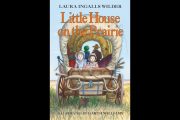As part of the continuing series of articles exposing the sex textline initiated in Virginia by Democratic Governor Ralph Northam, this writer interviewed a former Richmond, Virginia, private investigator who is also the mother of two teenage boys. We discussed the “sexual grooming” element of the sex textline and how it makes kids easy targets for sexual predators.
In the most recent articles in this series, Michael Lewis told The New American that he sees governor Northam’s allegedly anonymous sex textline for teens as a form of “sexual grooming.”
This writer’s wife came to the same conclusion, as did others with whom this writer spoke. Now, as part of the research for this series, this writer spoke with former private investigator Kimberly Williams.
Kimberly lives near Chesapeake, Virginia. In her career as a private investigator with Morse Investigations in Richmond, Kimberly spent years working in human trafficking interdiction and education. She told The New American that her “first blush” reaction to the sex textline “and the language they’re using is that it’s a form of broad grooming,” adding, “I’ve seen it in programs created by predators, that basically weaponize the uninitiated, and set precedents in safe environments that open children up to bad guys.” As an example, Kimberly mentioned organizations that encourage “youth leaders to pursue one-on-one friendships, disclose personal struggles, and solicit children to share what they don’t [share] with parents.”
And her professional opinion — born out if years of working in the gutter to help victims of sexual predators — is not mere conjecture, either. Take for instance the case of Joel Davis. Davis — a 22-year-old at Columbia University — was the founder of Youth to End Sexual Violence, which appears to have earned him a nomination to the Nobel Peace Prize in 2015. He was also on the board of directors for the International Campaign to Stop Rape and Gender Violence in Conflict.
But Davis — the champion for ending sexual violence against children — was also active online under the username “yngperv22” — which he used to collect child pornography images of children as young as infants being sexually abused by adults. He also solicited sex with minors using dating apps and other online tools. When the FBI began investigating him, the young man, who had postured himself to get in a position to be trusted by vulnerable victims, told an undercover agent that he had met a 13-year-old boy online and had sex with him. He tried with a younger boy, but failed “because he kept struggling.” Finally, he described — in graphic nauseating detail — the sex acts he wanted to perform on the undercover agent’s [fictitious] nine-year-old daughter.
In January 2020, Davis pleaded guilty to a litany of sexual crimes against children. He faced between 10 years and life for his crimes. He was set to be sentenced May 7, but no record can be found of that sentencing. As of the time of publication, The New American has received no reply from the U.S. Attorney’s Office for the Southern District of New York.
In the wake of Davis’ crimes coming to light, both Youth to End Sexual Violence and the International Campaign to Stop Rape and Gender Violence in Conflict appear to have gone the way of the Dodo. Lest that seem a shame to the reader, two things are of note: First, the last tweet by the International Campaign to Stop Rape and Gender Violence in Conflict — which had been active on Twitter since 2012 — was the day after Davis was arrested. That tweet, dated June 29, 2018, included a statement doing everything possible to distance the organization from Davis while promising to keep up the fight against sexual violence. It smacks of a public relations scramble for cover.
Second, looking at the document letterhead logo and the avatar for the organization on the Twitter profile, one notices that the logo is a depiction of a woman with a triangular body, hands raised, and a circular head with flowers on top. That is a typical depiction of Tanit (or Tanith), the ancient Phoenician version of Asherah — the goddess who was worshipped in the “High Places” by ancient Israel during their periods of idolatry. Tanit / Tanith / Asherah (known in many cultures under different names, such as Pachamama in South America) is the goddess of earth, time, and fertility. She is known for requiring — wait for it — child sacrifice.
So Kimberly’s assertion that pedophiles work under cover to position themselves to create an environment rich in child targets is not far-fetched; it is spot on.
Kimberly — who left private investigation in 2017 — initially spent several years of her career “helping locate missing and exploited persons, primarily children.” After one particularly disturbing case took a very dark turn, she said she “got a hard and fast education in exactly what child exploitation was and who does it.” She told The New American, “After that, my life was different. It was something none of us could unsee, and our mission changed dramatically as we re-educated and looked at our own industry with a more critical eye.”
As she moved forward in that new direction of her career, Kimberly continued to get educated and to educate herself about “grooming” tactics used by predators. She told The New American that Northam’s sex textline is a good example of “unwitting adults” being “encouraged to engage youths in ways that normalize — and prep children to engage in — dangerous activities.”
Looking at the marketing for the teen sex textline, she said, “I would classify this sex line as a form of spray and prey grooming,” she said, since, “It encourages children to talk to strangers in secret. It normalizes having adult to child sexual conversations. It also tells children that it is normal and acceptable to be isolated from their support system to discuss things that they may be uncomfortable with.” Kimberly says this is “straight out of the grooming children handbook.”
Even if (and that is a big if) the adults behind this have zero intention of exposing teens to sexual predators, the end result is the same, since Kimberly points out that “it’s still laying the groundwork for someone else to step in later.”
Once kids become habitualized to keeping sexual secrets from parents — while secretly sharing them with adult strangers — those kids are low-hanging fruit for predators. Kimberly told The New American, “As a parent and a professional, I see nothing positive coming from this and I an dubious of the origins, given the persons in office and who would endorse or back them.”
Given the grim statistics about child sexual abuse readily available, it is difficult to imagine that Northam and his accomplices in this are unaware that one in five girls and one in 20 boys is a victim of child sexual abuse. Or that — according to the same source linked above — children are most vulnerable to child sexual abuse between the ages of seven and 13. And yet, Northam wants people to believe that he thinks giving children as young as 13 information about “safe sex” is what is needed to protect children. It is almost laughable. Set aside for the moment the fact that nothing assures that kids younger than 13 won’t access this textline; 13-year-olds are at the peak of the spectrum for sexual abuse, and Northam’s sex textline is greasing the skids for those who would abuse them.
Rather than spend money the budget cannot bear to launch a textline that acts as a how-to course for kids to become sexually active before they are emotionally, psychologically, or possibly even physically ready for it, Northam — were he truly concerned about kids — could simply point parents to a resource for protecting their kids from becoming the next victim statistic of sexual grooming.
But, alas, he is instead aiding and abetting the abusers.
This is the third in a series of articles on the sex textline rolled out by Virginia Democrat Governor Ralph Northam. See Part One here and Part Two here. The next article in this series will address the information being promoted by the sex textline to encourage more and more sexual activity in younger and younger kids.





